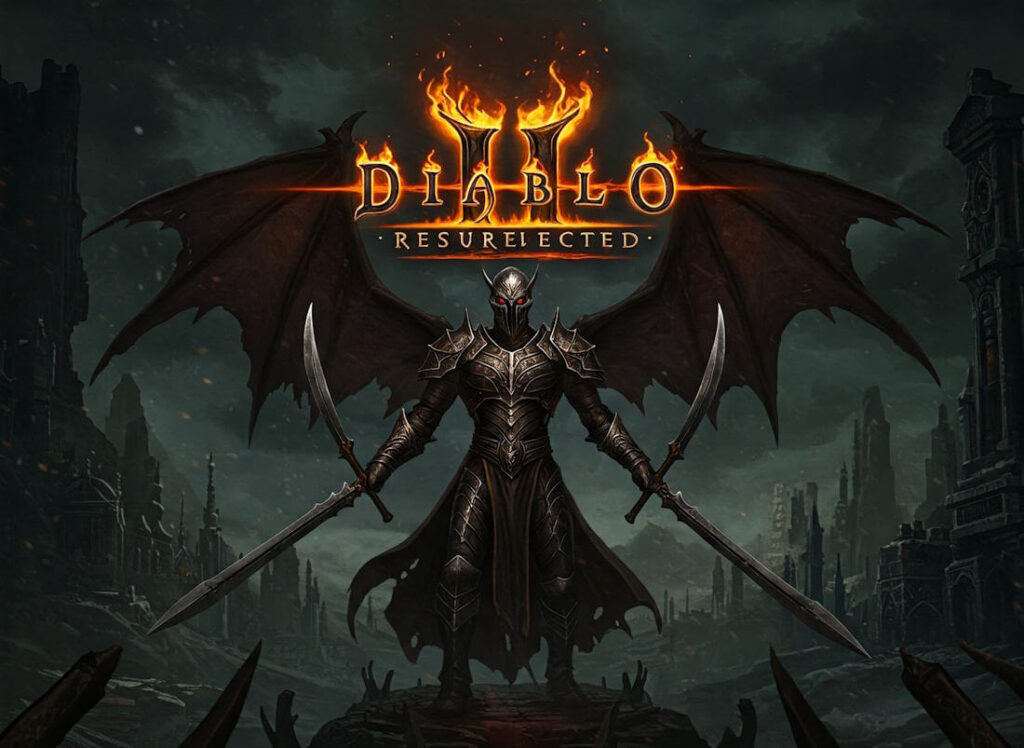Fallout 76, developed by Bethesda Game Studios, was officially released on November 14, 2018. This installment in the acclaimed Fallout series marked a significant departure from traditional gameplay mechanics. Unlike its predecessors, which primarily focused on single-player experiences, Fallout 76 introduced an online multiplayer framework that allowed players to experience the vast landscapes of West Virginia together, a bold move that generated excitement and trepidation among its fanbase.
Set in the year 2102, Fallout 76 serves as a prequel to the rest of the franchise, taking place twenty-five years after the Great War that led to widespread nuclear devastation. Players are tasked with rebuilding society and exploring a new environment teeming with mutated creatures, factions, and the lingering remnants of humanity. This ambitious setting aimed to captivate players by blending familiar elements of survival, exploration, and role-playing, all within the expansive, open-world context for which the series is renowned.
Despite high expectations, the initial reception of Fallout 76 was marred by numerous criticisms. Players and critics highlighted issues regarding technical glitches, server stability problems, and a lack of substantial content at launch. Many players felt that the online multiplayer element compromised the depth of storytelling and immersion typically associated with the Fallout series. Subsequently, the game faced backlash for its perceived lack of polish, leading to an overall assessment that it failed to meet the high standards set by its predecessors. In the years since its release, Bethesda has attempted to address the concerns of the community through various updates and expansions, striving to reshape the game’s reputation.
Unraveling the Initial Disaster
At its launch, Fallout 76 was met with considerable criticism, as significant issues marred the gameplay experience for players. One of the primary concerns centered around an array of bugs that plagued the game, causing many to face disruptions during their journey through the post-apocalyptic wasteland. Players reported game-breaking glitches, frequent crashes, and erratic enemy behavior, leading to a highly frustrating experience. Many were disappointed to find items disappearing from their inventories, which severely impacted their ability to progress and enjoy the game.
Additionally, server stability was a prominent issue. Players encountered frequent server disconnects and latency problems, which not only diminished immersion but also rendered cooperative play nearly impossible. The inability to reliably connect to servers meant that many players were forced to experience what should have been a seamless multiplayer environment plagued with interruptions, detracting significantly from the overall enjoyment of the game. This was particularly disappointing, as the Fallout series had built a reputation for engaging storytelling and immersive gameplay.
Game mechanics also came under scrutiny, as players criticized the lack of NPCs (non-playable characters) which traditionally populate Bethesda’s previous titles. This absence fundamentally altered the nature of quests, detracting from narrative depth and engagement. Players found themselves wandering the vast landscape without meaningful interactions, which resulted in a sense of desolation rather than the rich storytelling experience expected from a Fallout game. Player feedback reflected overwhelming dissatisfaction, with many expressing their disappointment through reviews and forum discussions, demanding significant improvements to the overall gameplay experience.
Bethesda’s Response and Updates
Since the launch of Fallout 76 in November 2018, Bethesda has faced significant backlash due to various issues, ranging from bugs and performance problems to the absence of NPCs in the initial release. In light of this criticism, the company has taken substantial steps to rebuild trust and enhance the player experience. Bethesda’s response has been characterized by a series of updates and patches aimed at addressing the concerns raised by the gaming community.
In the early days post-launch, Bethesda quickly released several patches to resolve critical bugs and improve gameplay mechanics. This included tweaks to server stability and fixes for progression issues that hindered players’ ability to enjoy the game fully. As it became clear that players sought a more engaging narrative experience, Bethesda committed to introducing more content that included quests and characters. The introduction of NPCs in the Steel Dawn expansion significantly reshaped gameplay, shifting it closer to the traditional Fallout experience that fans had come to expect.
Moreover, Bethesda expanded its commitment through seasonal content and updates, which provided players with new challenges, rewards, and events that fostered engagement. The addition of the Fallout 1st subscription service allowed for exclusive features, yet it faced mixed reviews. Bethesda made it a point to proactively communicate with the community through forums and social media channels, ensuring that player feedback informed future updates. The introduction of features such as Private Worlds and the much-anticipated Wastelanders expansion showcased the company’s willingness to adapt and listen to its audience.
In conclusion, Bethesda’s continued efforts to rectify the shortcomings of Fallout 76 have demonstrated a proactive approach despite initial missteps. As they strive to enhance the player experience, the responsiveness of the developers plays a crucial role in shaping the game’s ongoing narrative and player satisfaction.
New Features and Improvements
Since its initial release, Fallout 76 has undergone significant transformations, featuring numerous enhancements aimed at revitalizing the gaming experience. One of the most notable updates was the introduction of the ‘Wastelanders’ expansion, which marked the return of human NPCs to the game. This pivotal addition allowed players to engage in more immersive storylines and interact dynamically with these characters, offering depth that was previously lacking in the original launch. Players now have the opportunity to build relationships, complete quests, and experience a world that feels more populated and lively.
Another significant update is the ‘Steel Dawn’ expansion, which not only expanded the existing lore but also introduced new quests centering on the Brotherhood of Steel. This expansion further enriched the gameplay by adding new equipment, resources, and crafting options, giving players greater freedom to tailor their gaming experiences. Enhanced social systems, such as improved team dynamics and in-game events, have also garnered positive feedback, encouraging collaboration and community-building among players.
Quality-of-life improvements have been another focal point for the development team. Inventory management has received significant upgrades, addressing one of the most cited pain points by players. Enhanced user interface features and streamlined crafting systems make it easier for players to navigate their resources and equipment. The introduction of server stabilization has also improved performance, reducing the frequency of crashes and enhancing overall game stability, which has been crucial for maintaining player engagement.
In conclusion, the continuous integration of new features and improvements, such as the comprehensive expansions ‘Wastelanders’ and ‘Steel Dawn,’ alongside essential quality-of-life updates, has played a pivotal role in reshaping player experiences in Fallout 76. These enhancements demonstrate the developers’ commitment to refining the game and listening to community feedback, ultimately leading to a more enjoyable and enriched gaming environment for both new and returning players.
Player Community Engagement
The player community has played a pivotal role in shaping the direction of Fallout 76 since its launch. Initially met with skepticism and criticism, the game’s community has since evolved, becoming integral to its development and ongoing updates. Fan reactions to initial shortcomings highlighted various aspects, from technical glitches to gameplay mechanics, which dramatically influenced the course of subsequent patches and expansions. The feedback provided by dedicated players has not only addressed issues but also contributed to enhancing the game’s overall experience.
One of the key aspects of player engagement is the rise of community initiatives that aim to improve both in-game and out-of-game experiences. Many players have taken the initiative to create fan-made events, organize competitions, and establish mentorship programs for newcomers. These grassroots efforts foster a sense of camaraderie among players while promoting engagement with the game. The Reddit community and various social media platforms have served as forums for discussions, allowing players to submit ideas and suggestions directly to developers. In this way, the community has not only shared their enthusiasm but has also acted as a sounding board for potential improvements.
Moreover, Bethesda has responded to player feedback in a more proactive manner, evident through the introduction of community-driven events and seasonal content that reflects player interests. The inclusion of user-generated content, alongside regular updates, illustrates a commitment to maintaining an ongoing dialogue between developers and players. As players continue to raise concerns and offer suggestions, there has been an increasing alignment between community expectations and the game’s evolving features. This collaborative atmosphere lays a foundation for a resilient player community, showcasing how engagement can guide the development process and revitalization efforts for Fallout 76.
Current State of the Game
As of October 2023, Fallout 76’s development journey continues to prove to be an intriguing case study for the gaming industry. Initially marred by numerous launch issues and a lack of content, the game has seen a significant transformation over the years. Recent player numbers indicate a slow but notable resurgence in interest, with a current active user base that suggests a healthy community presence. This rejuvenation can be attributed to various updates, expansions, and improvements introduced by Bethesda, which have addressed many of the concerns raised by players at launch.
Player engagement has been further bolstered by the introduction of seasonal events and community challenges that keep the game dynamic and encourage collaboration among users. Additionally, the game’s developers have made concerted efforts to foster a more inclusive environment, promoting cross-platform play and encouraging feedback through various channels. These efforts have resulted in an increasingly active community, as players gather not only to explore the vast open world but also to engage in discussions surrounding updates, strategies, and experiences.
However, despite these improvements, Fallout 76 still faces skepticism from players who remember its troubled start. Recent reviews highlight a mixed sentiment; while some players express enjoyment of the revised gameplay and community features, others remain unconvinced, citing lingering issues such as bugs and balancing problems. Despite the ongoing challenges, the game’s transition from “disaster” to a more stable and enjoyable state is evident. Consequently, many fans are cautiously optimistic about the direction in which Fallout 76 is headed, reflecting an evolving gaming experience that seeks to honor the legacy of the franchise while addressing past shortcomings.
Comparative Analysis with Other Fallout Titles
The Fallout franchise has established itself as a cornerstone of the action role-playing game (RPG) genre since its inception. Each installment has provided players with a unique blend of narrative, exploration, and character development. Fallout 76, released in 2018, marks a significant departure from the traditional single-player experience that has characterized its predecessors, notably Fallout 3, Fallout: New Vegas, and Fallout 4.
One of the most glaring differences lies in the gameplay structure. While earlier titles offered rich narratives driven by engaging non-player characters (NPCs) and intricate plotlines, Fallout 76 embraces a multiplayer environment, emphasizing player-driven interactions. This shift has led to a different approach to storytelling; instead of direct NPC engagement, players uncover the game’s lore primarily through environmental storytelling and holotapes. Consequently, this absence of human NPCs has been a point of contention, as many players missed the depth and emotional connection found in previous titles.
Furthermore, the vast, open-world design remains a staple across the series. However, Fallout 76 introduces a dynamic online world that is heavily influenced by the actions of its community. The interactions amongst players—cooperative missions or competitive encounters—forge a unique experience that differs from the solitary journeys in Fallout 3 and 4. Players enjoy the camaraderie and competition, but this may come at the cost of structured storytelling.
From an experiential standpoint, the sense of immersion within the post-apocalyptic environments has been notable in each Fallout game, yet the lack of a single cohesive narrative in Fallout 76 has raised debates regarding its place in the franchise. Critics often argue that the reliance on multiplayer mechanics has diminished the essence of what made the Fallout titles so revered. Ultimately, assessing Fallout 76 in comparison to its predecessors highlights the ongoing evolution of the franchise and its attempts to adapt to changing gaming landscapes.
Future of Fallout 76
As Fallout 76 continues to evolve, the prospects for its future are both promising and contentious. Bethesda has hinted at significant developments for the game, with a roadmap that outlines potential new content and features aimed at enhancing the player experience. One of the critical aspects of this roadmap is the introduction of additional expansions and updates that could reinvigorate interest in the title. Players are particularly eager for new storylines, quests, and dynamic events that could deepen the narrative experience and enrich gameplay.
The community’s response to past updates has been mixed; many players remain hopeful for improvements based on Bethesda’s commitment to addressing previous critiques. This hopeful sentiment among the player base is reinforced by ongoing community discussions and feedback that suggest a desire for more engaging content and a more stable gaming environment. Players are particularly enthusiastic about features that would enhance collaborative gameplay, as multiplayer experiences remain a central aspect of Fallout 76.
Furthermore, whispers regarding potential integrations of classic Fallout elements, such as stronger RPG mechanics and emotional storytelling, have generated excitement about the game’s evolution. Bethesda seems to acknowledge the necessity of strengthening these foundations to attract both nostalgic fans and new players. The continuous updates and scheduled expansions are vital in ensuring that Fallout 76 does not only survive but thrives in an evolving gaming landscape.
Moreover, the implications of these developments extend beyond just Fallout 76; they could influence the direction of future Bethesda projects within the Fallout franchise. The lessons learned and innovations realized during the ongoing evolution of Fallout 76 will likely shape how future games in the series are conceptualized and developed, ensuring that the franchise continues to resonate with its audience for years to come.
Conclusion: Redemption or Not?
As we reflect on the journey of Fallout 76, it becomes evident that the game has undergone significant changes since its initial release. The launch was marred by a multitude of issues, including bugs, performance problems, and a lack of engaging content, which led to widespread disappointment among players. However, over the years, Bethesda has made concerted efforts to rectify these problems through various updates, expansions, and community engagement strategies.
Improvements in gameplay mechanics, the introduction of new storylines, and the addition of features such as NPCs have revitalized the player experience. These enhancements have contributed to a more immersive and engaging world, allowing players to explore the post-apocalyptic environment with greater depth and interaction. Furthermore, the incorporation of seasonal events and quests has fostered a renewed sense of community and purpose within the game.
Despite these advancements, some lingering issues remain. Criticism of bugs and the unfinished nature of certain features persists, suggesting that while progress has been made, the game might not yet be fully redeemed. Additionally, the balance of gameplay continues to raise concerns among veteran players, many of whom seek deeper mechanics than what the current iteration offers. This prompts a crucial question: has Fallout 76 truly redeemed itself, or does it still fall short of expectations?
In conclusion, while Fallout 76 has certainly made strides towards improvement, the overall assessment remains nuanced. The game has transitioned from a disastrous launch to a more polished experience, but whether it can be deemed a complete success is still a matter of personal perspective. Players must weigh the newfound elements against the backdrop of previous disappointments to determine if the title can stand on its own merits in the long term.




